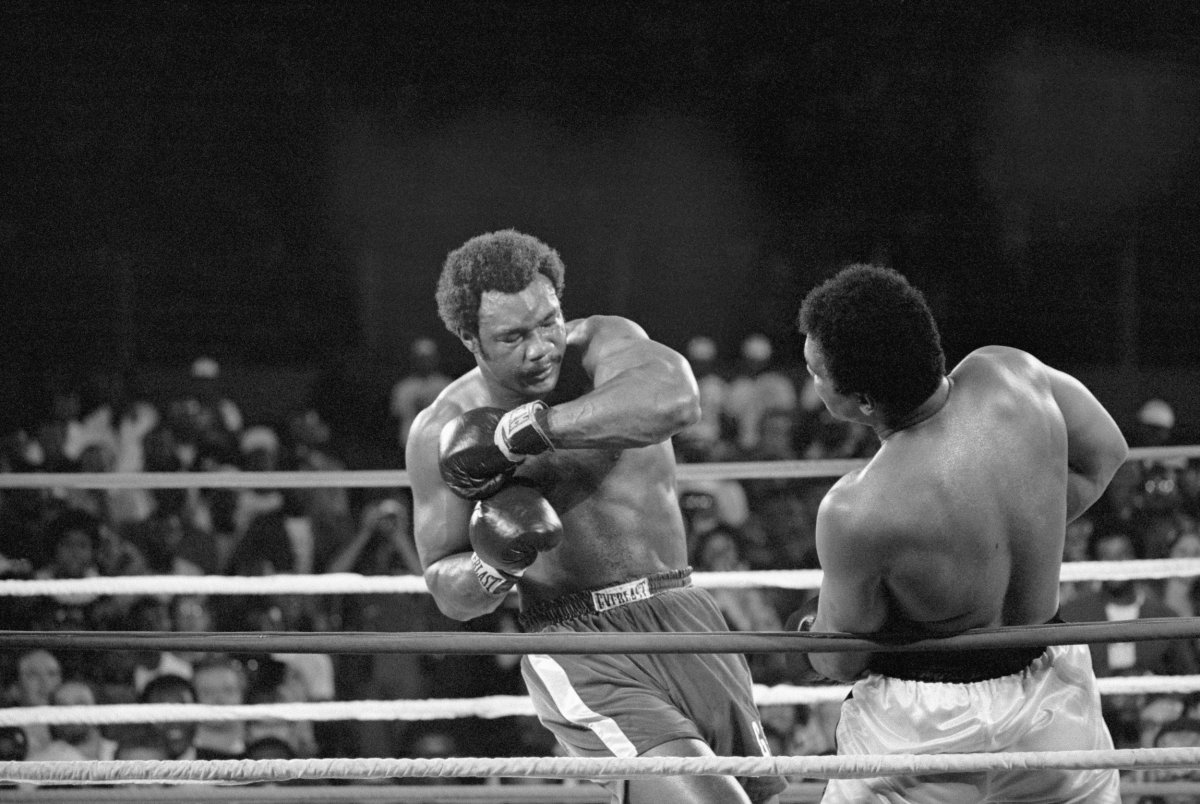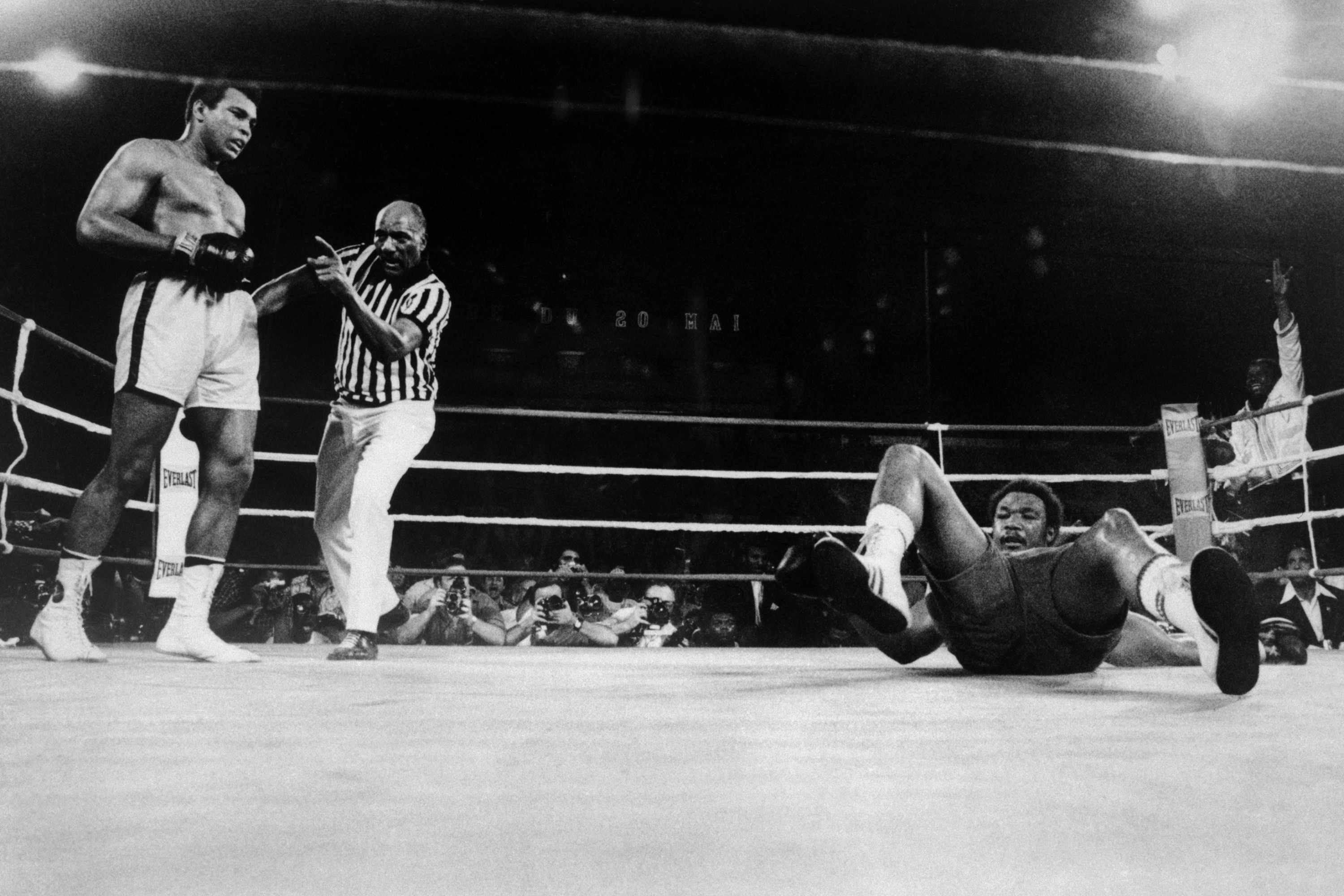This year marks five decades since the legendary “Rumble in the Jungle,” where Muhammad Ali faced off against George Foreman in Zaire, now known as the Democratic Republic of the Congo. This fight, viewed by an estimated billion people, ended dramatically in favor of Ali.
At 32, Ali was a two-time world champion but had two professional losses, putting him at a disadvantage against the younger, undefeated Foreman, known for his devastating power. Despite this, Ali executed a brilliant strategy called “rope-a-dope,” which allowed him to tire Foreman out before delivering a knockout in the eighth round.
Throughout the fight, the local crowd rallied behind Ali, passionately chanting “Ali, boma ye!”—or “Ali, kill him!”—as he taunted Foreman with his sharp wit, adding tension to the highly anticipated bout.

Getty/Bettmann/Contributor
However, the Rumble in the Jungle was more than just a boxing match. It was a groundbreaking event for promoter Don King, who secured hefty financing from Zaire’s leader, Mobutu Sese Seko, to put the country in the global spotlight.
To build excitement, a music festival called Zaire 74 was held just before the fight, featuring icons like James Brown and Bill Withers. Originally scheduled for September 25, the fight was postponed to late October due to a Foreman training injury, which only heightened the anticipation.
This historic fight has sparked books and films, including Norman Mailer’s The Fight and the Oscar-winning documentary When We Were Kings, securing its place in cultural memory.
Lou DiBella, Boxing Promoter
While I hesitate to label it the greatest fight in history, it certainly stands out as one of boxing’s most dramatic moments. Ali was the quintessential hero facing a seemingly unbeatable giant, and the fight was a masterclass in strategy and showmanship.
I remember being a kid, worried for Ali as Foreman loomed large and fierce in the ring, but the unexpected twist of the fight made it unforgettable.

Getty/AFP/Staff
The storyline and atmosphere, with the vibrant backdrop of Zaire, made it a cinematic spectacle. The significance of Ali’s victory was monumental, showcasing his ability to outthink and outmaneuver his opponent.
Freddie Roach, Boxing Trainer
While it might not be the absolute greatest fight, it’s undeniably one of the most significant. At that time, Foreman was perceived as invincible, and Ali had more doubters than supporters. His confidence and ability to win the fight catapulted him into legendary status.

Getty/Bettmann/Contributor
Ben Shalom, Boxing Promoter
For me, the Rumble in the Jungle is the greatest fight ever. It was an epic logistical feat, showcasing Ali’s resilience and tactical genius in a captivating setting. Such unforgettable moments in sports are rare and often crafted by legends like Ali.
Mike Silver, Boxing Historian
While not the most technical fight, it was a cultural landmark. Ali’s ability to transcend sports was unparalleled, and his victory marked one of boxing’s biggest upsets, symbolizing an era when heavyweight boxing was a pivotal part of society.

Getty/AFP/Staff
Jim Lampley, Sports Broadcaster
Ali’s triumph in the Rumble in the Jungle stands as one of his most extraordinary accomplishments, surpassing even his earlier surprises against Liston and Frazier.
Thomas Hauser, Boxing Writer
In the context of boxing history, fights like Johnson-Jeffries and Louis-Schmeling II are more significant than Ali-Foreman. However, the event remains an unforgettable piece of boxing lore.
